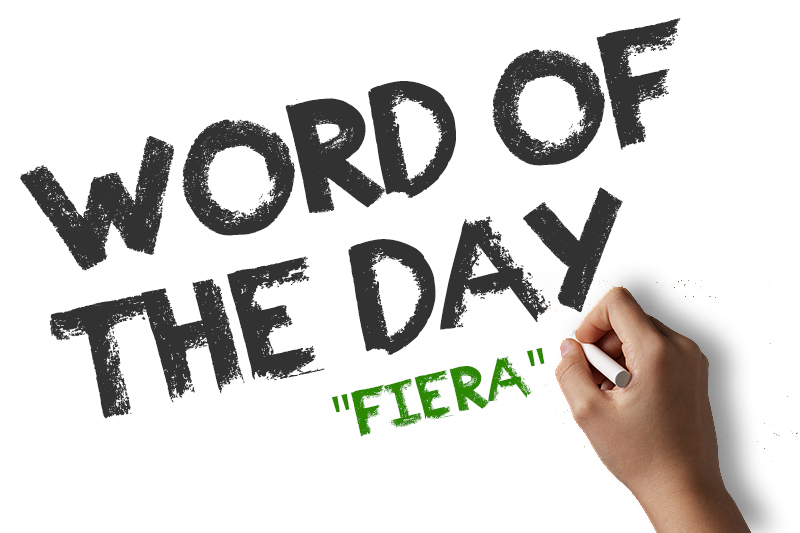Today’s word may be a tad confusing to some, because it has more meanings and all of them are very common — well, besides one, which is probably a favorite only among Dante’s aficionados. Fiera (fee-ai-rah) is mostly used in two ways: as a noun and as an adjective.
Let’s go in order and begin with the one you may be more familiar with, fiera the noun, which is easily translated in English with the word “fair.” Just like in English, fiera represents any form of large gathering dedicated to a specific topic, product, or produce: we can have a fiera d’Estate (a summer fair), but also a fiera del fungo (a mushroom fair) and a fiera del cioccolato (a chocolate fair). But it doesn’t have to be about food: fiere del mobile (dedicated to furniture) or fiere dell’artigianato (craftsmanship fairs) are all the rage, too, these days.
With this meaning, the word fiera derives from the Latin feria, which meant “holiday” or “celebration,” and it came to be through the metathesis of the original Latin (that’s a fancy word to say that sounds in a word change position) sometimes in the mid-13th century.
Fiera, we said, can also be an adjective, more precisely the feminine singular of fiero, which means “proud.” We say, for instance, that sono fiera di te: hai fatto un ottimo lavoro (I’m proud of you: you did a great job!), but also è una donna fiera delle proprie radici (she is proud of her roots).
Last but not least, we shouldn’t forget that fiera can also mean “beast:” while old-fashioned, it is iconic in Italian because of the use Dante made of it in the Divine Comedy, more specifically in the first Canto of the Inferno, where he encounters three wild beasts, an allegorical representation of lust, arrogance and avarice, which he calls fiere.
— Andiamo alla fiera del gelato questo weekend?
— Shall we go to the ice cream fair this weekend?
— Ben fatto! Sono fiera di te!
— Well done! I am proud of you!
— Devi essere fiera di questo risultato, hai lavorato duro per ottenerlo.
— Be proud of this achievement, you worked hard to get here!





























